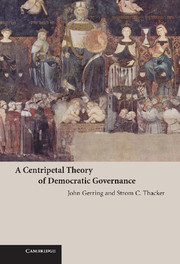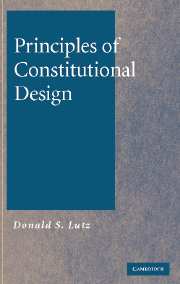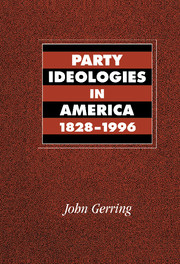A Centripetal Theory of Democratic Governance
This book outlines the importance of political institutions in achieving good governance within a democratic polity and sets forth an argument to explore what sorts of institutions do the job best. By focusing on 'centripetal institutions', which maximize both representation and authority by bringing political energy and actors toward the centre of a polity, the authors set forth a relatively novel theory of democratic governance, applicable to all political settings in which multi-party competition obtains. Basing their theory on national-level political institutions, the authors argue that there are three types of political institutions that are fundamental in securing a centripetal style of democratic governance: unitary (rather than federal) sovereignty, a parliamentary (rather than presidential) executive, and a closed-list PR electoral system (rather than a single-member district or preferential-vote system).
- A novel theory of democratic governance, applicable to all political settings in which multi-party competition obtains
- Provides a detailed account of three different types of political institutions; unitary, executive, and a closed-list PR electoral system
- It is synoptic, addressing a wide range of political questions about how institutions matter to public policy
Product details
July 2008Adobe eBook Reader
9780511406096
0 pages
0kg
16 tables
This ISBN is for an eBook version which is distributed on our behalf by a third party.
Table of Contents
- 1. Models of governance
- Part I. Causal Mechanisms:
- 2. Party government
- 3. Conflict mediation
- 4. Policy coordination
- Part II. Empirics:
- 5. Hypotheses
- 6. Crossnational tests
- 7. Assessing the evidence
- Part III. Conclusions:
- 8. In defense of grand theory
- Appendix A. Defining good governance
- Appendix B. Alternative theories revisited
- Sources.













